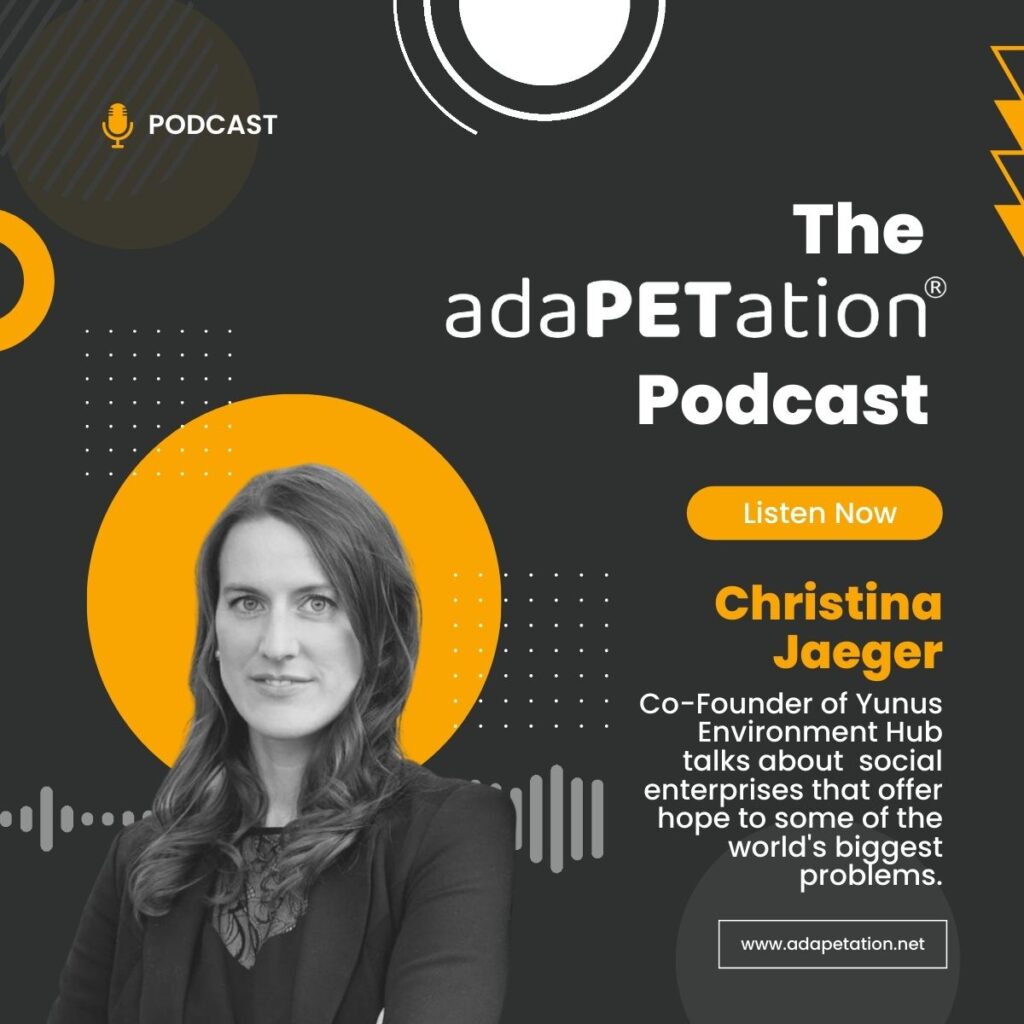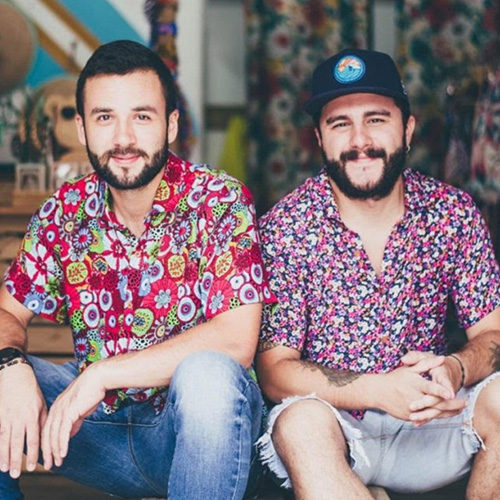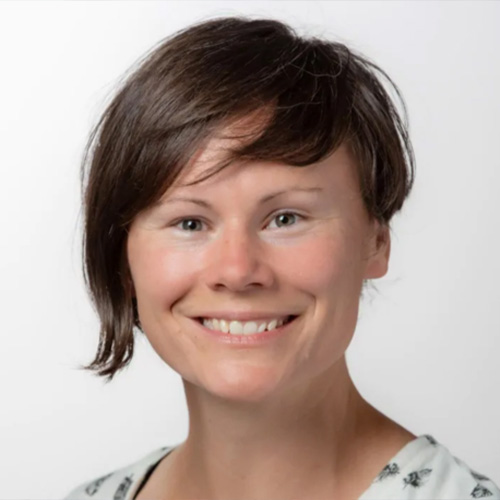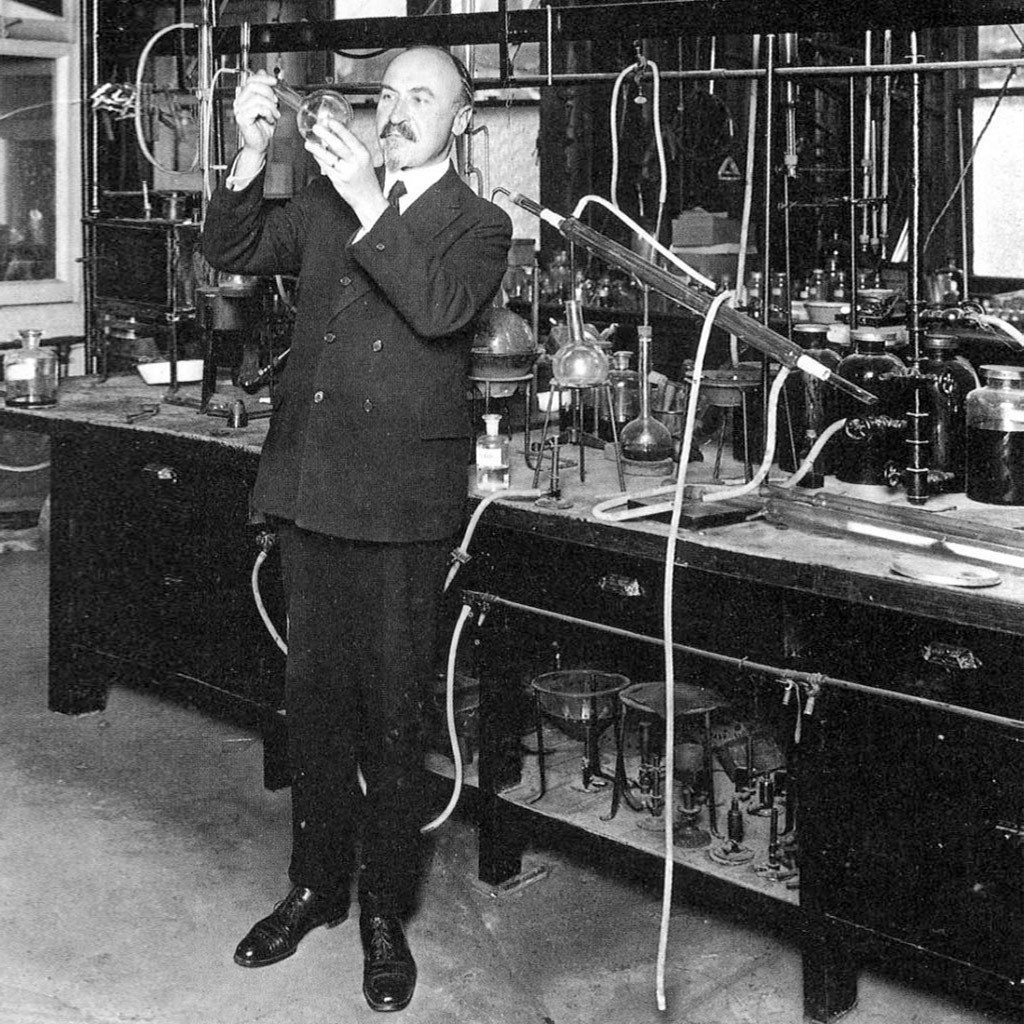
Discover how Yunus Environment Hub is transforming the environmental and climate crisis through social business solutions, including their Circular Rise program and Zero Plastic Waste Cities initiative.

One organization leading the way in the response to the mounting environmental challenges we face is Yunus Environment Hub (YEH). Co-founded by Nobel Peace Prize Laureate Prof. Muhammad Yunus, his Creative Advisor Hans Reitz and our latest interviewee, co-founder and managing director, Christina Jaeger, YEH develops social business solutions that tackle the environmental and climate crisis.
Jaeger explains that “YEH develops social business solutions that tackle the environmental and climate crisis.” At the heart of YEH’s work is the concept of social business as a way to combat the climate crisis. The concept translates into helping social business entrepreneurs who are passionate about the climate, environment, and ecosystems to set up ventures that protect our environment as one of the key activities to achieving net zero carbon emissions.
Through incubator and accelerator programs, YEH provides capacity building and technical assistance to entrepreneurs at different stages of their venture journey. According to Jaeger, “We help them with capacity building and technical assistance in order to grow their ventures and their impact.” The goal is to help these entrepreneurs scale and grow their ventures, ultimately achieving their impact.
But YEH isn’t just focused on the environment. They recognize that the social and economic aspects of social business play a crucial role in reducing poverty and inequalities. YEH’s approach is built on Professor Yunus’ vision of a world of three zeros: zero poverty, zero unemployment, and zero carbon emissions.
Jaeger explains that “the ultimate objective of all of this and the impact that we’re having with Yunus Environment Hub is to achieve zero net carbon emissions. And since we are tackling this through social business entrepreneurship, the social and economic part also comes in that plays a crucial role in reducing poverty and reducing inequalities.”
YEH’s work covers a range of environmental topics, from waste and plastic management to clean energy and access to clean water. According to Jaeger, “the concept of a circular economy is at the heart of our work.” One of their programs is Circular Rise, which helps social business entrepreneurs become more circular. Jaeger explains that “we help the businesses to explore what are the different levers within the circular economy in order to generate less waste and become more resource efficient, which again also comes with energy efficiency, water efficiency or any other natural resources that you need in order to produce and offer your products or services.”
One of the key benefits of Circular Rise is the peer-to-peer support and coaching that entrepreneurs receive. In some cases, the waste output of one company can be used as a material input for another company. This type of collaboration is not only environmentally beneficial but creates a more sustainable and equitable economy.
YEH also works on the issue of plastic waste leakage into the environment through their Zero Plastic Waste Cities program. Jaeger explains that “the focus here has been on cities or countries in the Global South where municipal solid waste systems are underserved.” By analyzing the current situation of waste in these cities, YEH proposes social business solutions to resolve issues and improve waste management. The program ultimately aims to help manage waste better so that it doesn’t leak into the environment and improve the working and living conditions of people working in the collection of waste materials.
One success story from YEH’s portfolio is Bottle Logistics, a waste management company that works on glass and metal recycling, as well as offering refill products or refill models for companies. According to Jaeger, “a lot of businesses are moving away or they have recognized that single-use plastic is a wasteful material that should not be put on the market. And we need these more sustainable solutions. And so this is one example.”
But YEH’s work is not limited to Asia, South America, or Africa. The organization recognizes that developed economies also need to reduce their plastic consumption and waste production. This is where the circular economy comes into play, and it’s a mindset that needs to shift everywhere.
Our world is facing a climate crisis, and we need to act now. According to Jaeger, “the ultimate objective of all of this and the impact that we’re having with Yunus Environment Hub is to achieve zero net carbon emissions.” By reducing waste and becoming more resource-efficient, we can create a circular economy where waste is a thing of the past. It’s time for us all to take action and work towards a world of three zeros: zero poverty, zero unemployment, and zero carbon emissions.
If you like this content and would like to help close the loop on plastic waste then join the adaPETation® Network by clicking on the button below
Share it
THE HISTORY OF PLASTIC
Throughout the history of plastic, PET has been crucial in keeping food fresh with lightweight and durable packaging solutions that have helped reduce food waste for almost a century. Learn all about the invention of plastic and the important role it has played feeding people and saving the lives of humans and elephants in the adaPETation® timeline of the history of plastic.





